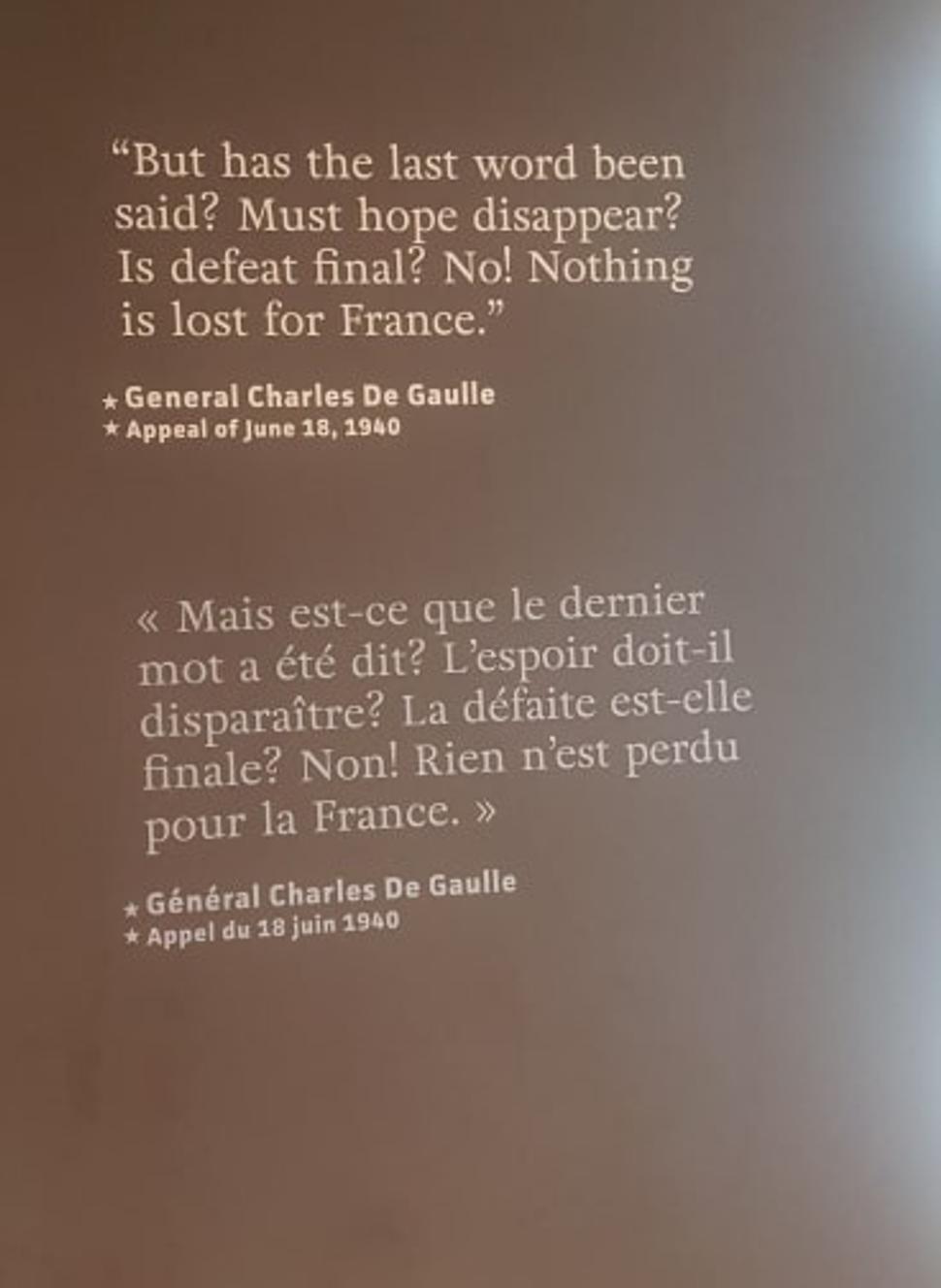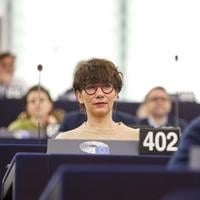Upozornenie autora (obzvlášť pre jeho známych): autor článku podporuje ekonomickú aj politickú integráciu 27 krajín EÚ. Avšak, verí, že je potrebná politická komunikácia naprieč straníckymi ideológiami, a teda odpovede pána Hannan-a nevyjadrujú názory autora ale konzervatívneho britského politika Daniel-a Hannan-a. Podľa autor-a je pochopenie názorov pána Hannan-a zaujímavým pohľadom na analýzu súčasnej politickej situácie vo vládnucej strane Veľkej Británie – Konzervatívnej strane. Interview taktiež objasňuje dlhodobé súvislostí na britskej politickej scéne vedúce až k Brexit-u, ako aj historickú analýzu argumentu chýbajúcej suverenity v rámci EÚ. Pre neinformovaného čítateľa autor odporúča štúdium politického termínu 'pooled sovereignity' slovensky 'spojenej suverenity' .
Je mi cťou čítateľom v mojom prvom SME blogu poskytnúť práve rozhovor (v angličtine) s prominentným členom britskej Konzervatívnej strany Daniel-om Hannan-om.
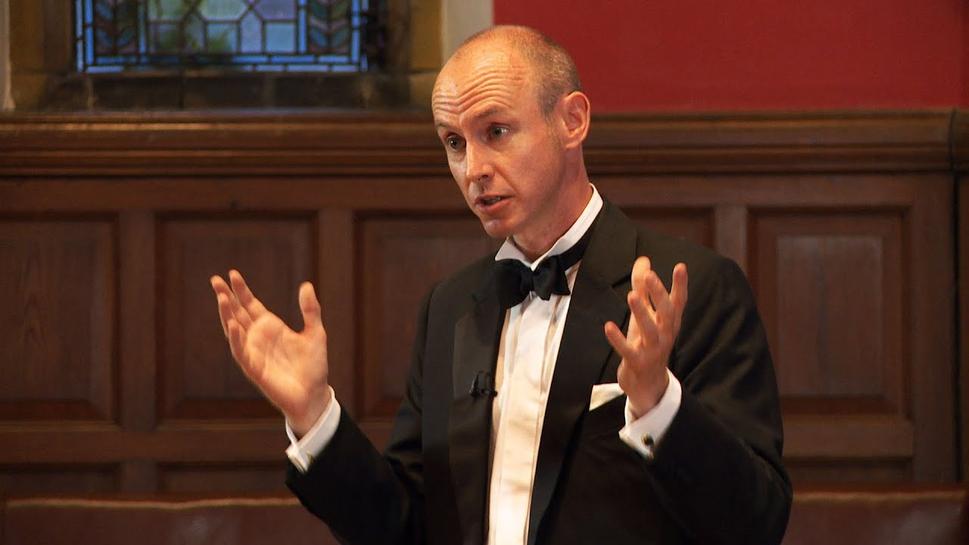
Nevolil by Trump-a, ani Le Pen avšak verí, že Británia nepatrí do politicky integrovanej EÚ. Tomuto cieľu približoval britskú politickú scénu od Maastrichtskej zmluvy. Vzťah Británie a EÚ by sa podľa neho mal podobať Švajčiarsku. Presvedčil prvého člena (dnes opäť členku) britského kabinetu, aby sa pridala ku kampani Vote Leave. Výsledok referenda považuje za pokrok Británie v dlhodobom horizonte. Daniel Hannan, človek, ktorý zasvätil svoj život, ako by povedala väčšina tradičných politických komentátorov, ’utopickej verzii Brexit-u’.
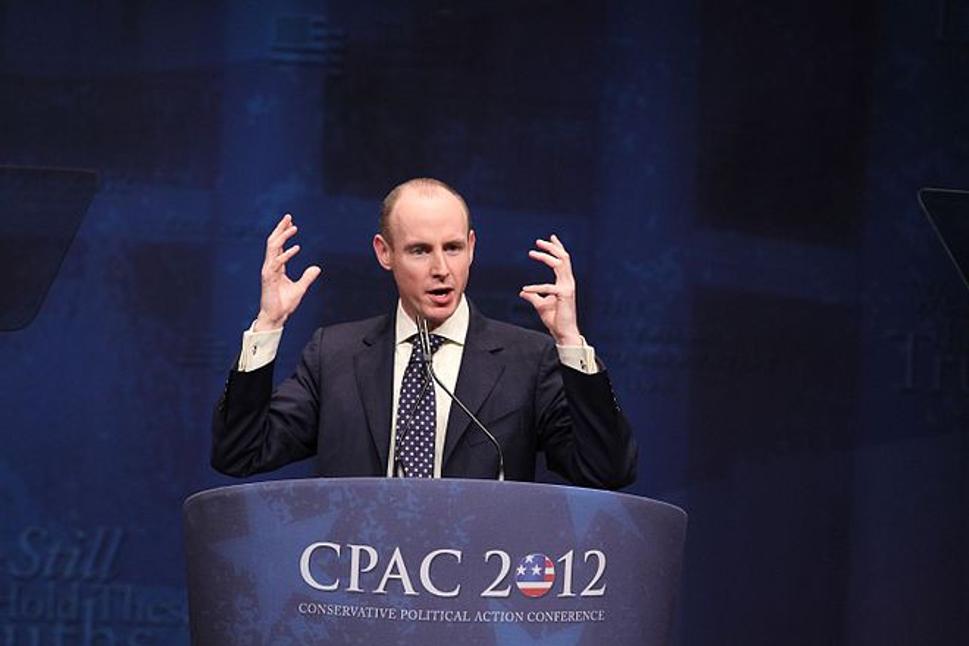
Po viac ako 20-ročnej anabáze v Európskom parlamente, kde okrem iného založil euroskeptickú frakciu ’Aliancia Konzervativcov a Reformistov Európy’, dnes píše články pre vydania ako The Telegraph, The Wall Street Journal, The Guardian. Okrem iného je autorom kníh ako ’Ako sme vynašli slobodu a prečo na tom záleží ?’, ktorá sa zaoberá tradične anglofónnou tradíciou deľby moci, ako aj ’Prečo voliť odchod ?’ a ďalších. Za jeho akademickú a žurnalistickú prácu mu boli udelené ocenenia Georg-a Orwella a Frederic-a Bastiat-a.
INTERVIEW:
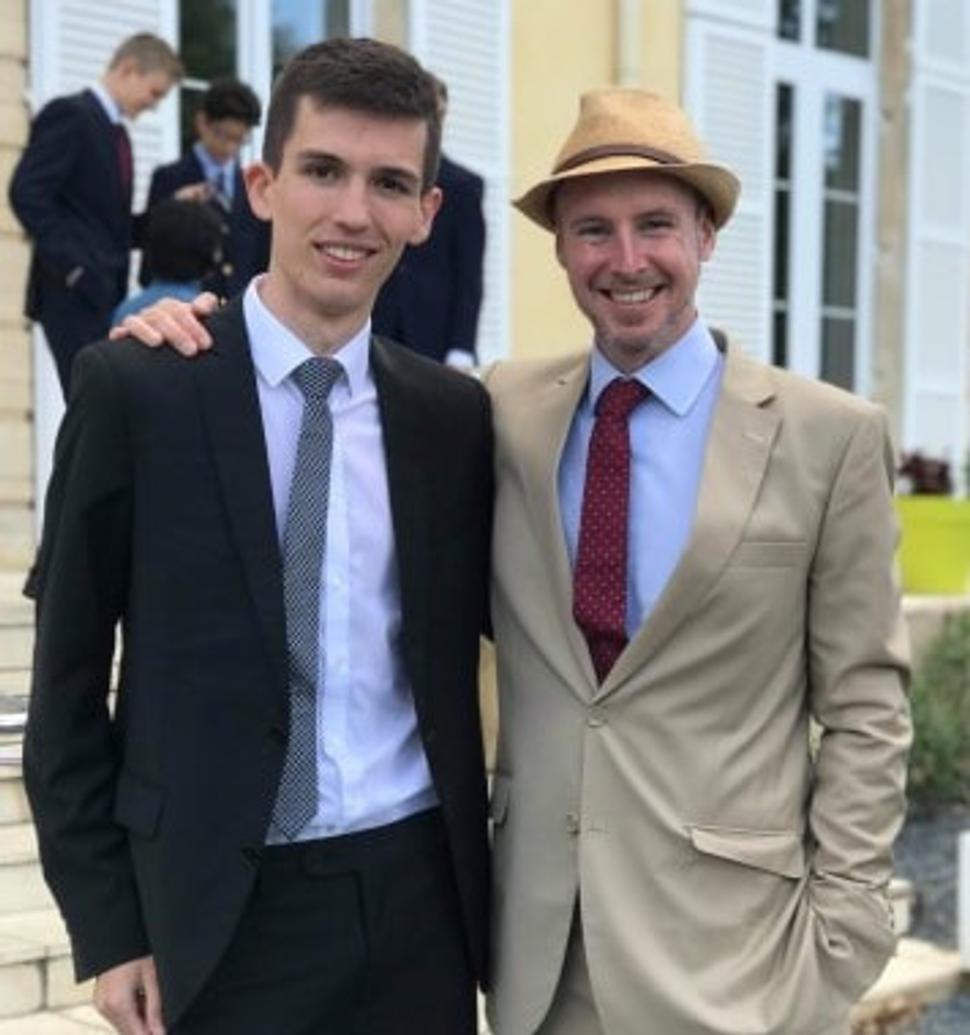
What's your view on the current state of Brexit? Where do you see UK’s long-term political interests after Boris Johnson has assembled the cabinet? Would your first actions be different from Boris if it were you heading 10 Downing Street?
Before and during and after the campaign. I argued for a Swiss-type deal. I thought Britain should re-join EFTA and I felt that we should broadly maintain the common market but withdraw from political institutions. The result was close, 52% to 48%, and it seems to me that my suggestion would have been a fair reflection. In a parallel universe somewhere, that happened three years ago, and there was no more argument. Unfortunately, Theresa May had different ideas. She was determined to make the whole thing about immigration. And we wasted three years, and the worst of it is that I think a lot of people in Brussels got the idea that if they were tough enough somehow Brexit wouldn't happen. Through a combination of Theresa May's hopelessness, the loss of her parliamentary majority, and an absolute intransigence from people in Brussels who would rather hurt all sides than see a post-EU Britain succeed we are now at a position where it seems quite likely that there will be no deal, which was a totally avoidable situation but now is the likeliest outcome.
If we focus on the politics of today would you go for a no-deal decision, and if you would be for a deal, what would that deal be?
Well, I think the moment has passed for my ideal scenario which, as I say, is kind of an EFTA type deal. It's too late to do that in the time available now, that basically should have happened but did not. In the current withdrawal agreement terms, the UK has signed up to an awful lot of things that are difficult to justify for any government. There’ll be two years when we are effectively non-voting members when we are bound by every dot and comma of the EU law, paying in as if we were full members. We will even have to obey all the laws passed during that time, but we will have no votes, no vetoes. I do not believe that any international tribunal would uphold the figure of £39 billion being billed to the UK. I mean, that was put on the table as a kind of goodwill gesture. I don't think anyone thinks; it's a legal obligation. The arbitration system is hugely one-sided; it even provides this continuing role for the European Court after we have left. So, there's a lot of things in that agreement that I don't like and that the parliament does not want. However, I do think Parliament would be prepared to swallow all those things if there were just one thing removed, which is the proposal to keep Britain in a permanent customs union or as they call it the Irish backstop. But that’s a misleading word for it; effectively it's a customs union proposal. EU membership, at least in theory, has an exit clause. But the customs union membership would not. So, you are asking a country to swap a status which you can leave for one that you can't. There's just no way that that's going to go through Parliament and I'm afraid that's why I can say a no-deal outcome is now likely.
Turning to British interests. What do you think Britain should be doing now to prepare for Brexit? You were yourself a positive advocate. Realistically is there time for the UK to develop new trade relationships, possibly one with the United States?
Yes, indeed. I mean and this in a way is the worst indictment of the approach taken by Theresa May for three years. It is now clear that she was never serious about discussing trade deals with anyone else because she thought Britain would end up staying in the European Union’s Customs Union. So, you know, the United States, Australia, China, Brazil everyone has said we want to start talking about trade to you, and all the delay was coming from the British side because we don't want to upset Brussels. But the approach was, if we are nice to the Brussels officials, then maybe they will reciprocate. But that policy has been a catastrophic failure. You know they pocketed the concessions and demanded more. Donald Trump now says that he had offered an in-depth, comprehensive free trade agreement right at the beginning. Theresa May said I wouldn't even talk about it until we have left. He said, well what is the EU going to do then, I mean send tanks? How can they stop you? She wouldn't talk about it. That has now changed.
To be honest, if every other country in the world is offering a free trade in quite an ambitious way and the EU alone is saying we will not even discuss a trade deal with you until you've agreed to permanently extend our Customs Union then kind of we have no choice but to pivot to the Atlantic.
So, your answer to how to restore British post-Brexit trade is the United States?
Oh yeah, yeah. And the important thing about it is that it should be based on mutual recognition rather than standardisation. In other words, instead of saying this is what we call a car and to senators, a car needs to meet other criteria. It would be mutual recognition, i.e. if you call it a car, that’s good enough for us. And if we call it a car you will recognise it. So, any drug approved by the FDA would be automatically legal in the UK and vice versa.
I would also apply this not only to goods and services. I would further abide by professional qualifications so that if you can work as a trader in the City of London, you should automatically be allowed to work on Wall Street.
Speaking of services and Brexit, what about the City of London? Would it require a special relationship with the EU, which indeed was among the wildest proposals?
Funnily enough, this is the only page where the EU has struck a deal already. They say that they are prepared for no-deal, but they have struck a deal to leave all the existing systems on mutual recognition and equivalence in financial services. And I assume that the reason for that is because, if there is let's say a breakdown of the Italian banking system, it's only the City of London that can recapitalise Italian banks.
So, I think after a certain amount of lobbying from financial institutions in the EU has decided to leave things as they are. But as far as the long-term interests of the City of London go to the City of London doesn't compete with Paris or Frankfurt or Milan, the City of London competes with New York with Singapore with Shanghai. In the long run, we basically cannot be subject to EU regulation; financial services are too big a part of our economy for that. We cannot have that being regulated by people whose interests diverge,
Following up on that, what's your opinion on the pounds exchange rate. What we saw after Boris announced cabinet seemed to be a shock to markets.
Well, I'm not sure how much of a shock because in the run-up to the referendum the IMF was saying the pound is 20 per cent overvalued. The OECD was saying something closely similar. So according to that definition, it is still overvalued compared to what they were saying it should be in 2015. The reality is that all the world's central banks since the crash were trying to devalue their currency the ECB was doing it the Bank of England, the Fed, the Bank of Japan. The problem that Sterling had is that it had become a haven currency for the euro. So, every time the Bank of England did something that was supposed to drive down the value like more quantitative easing or even lower interest rates, there would then be some new crisis about the Greek debt, and there'd be another flood of money. But look, I mean, I'm a free-market guy. It's not for me to say what the value is. I think that the markets will determine that.
What’s your view on the UK's post-Brexit migration policy? I mean you yourself of migrant background, how does that combine with your active support of British parliamentary sovereignty?
Yes. So, I am a believer in free movement of labour, and my ideal outcome is that the UK should say to all countries with a vaguely compatible level of GDP- there is a right to come and take up a job here, and I think we would apply that to the EU. And if we're applying it to the EU, it would be impossible not also, to apply to the United States, Australia, Canada, New Zealand, Singapore, and the other English-speaking democracies.
However, the right to take up a job should not imply the right to claim wealth, the right to family reunification, the right to citizenship, the right to vote or anything like that. But there should be a right to take up a job. And if you then want all of the other things, apply for citizenship we're always happy to have people.
So now, I would like to touch upon how you started engaging with British politics. I mean you campaigned against the European Exchange Rate Mechanism at the same time you were involved in the Conservative Party and ended up being the president of the Conservative Association at Oxford. Would you be firmly against the EU already? Is Euroscepticism something which you developed at Oxford at that time?
So, the Maastricht Treaty was ratified during my time at Oxford. Up until Maastricht, you could still plausibly claim, that the EU was primarily an association of sovereign nations, bound together for trade and economics. Of course, there were federalists before Maastricht, but the idea of the United States of Europe was just one among a series of competing different visions. The Maastricht Treaty marked a fundamental change in Europe. It stopped being the European Economic Community and became the European Union, and it extended its jurisdiction into a whole series of policies that had nothing to do with economics or trade. By that, I mean defence, migration, Foreign Affairs, criminal justice, environmental policy, culture, media. And this was also the time when there was this massive emphasis on promoting the symbols of statehood, flag, national anthem, passport. And of course, the currency.
So, there was a huge change between the European Economic Community, which was a club of nations and the European Union which was a state in the making, and that was the birth of Euroscepticism in Britain. I mean it hadn't existed since the 1975 referendum not really, a tiny fringe of the far left but nowhere else. And then it became a big deal. It started in about 1991-1992, and that just happened to be when I was an undergraduate. So, I was part of that generation that was influenced by this change in the EU. Then as now, I always thought, well if Britain could get a kind of pre-Maastricht status. I would not expect the whole of the EU to go back; I am saying that the EU in that form is not for us. But if we could have an economic zone, that would be fine. Even as late as February 2016, when David Cameron went to do the renegotiation, if he had been able to come back with any significant repatriation of power, that would have been enough at least for me.
Coming back to your time at Oxford, would you say that your Marlborough private education and or your degree in modern history sparked your interest in politics? Or did it develop independently?
So, I was naturally interested in politics from an early age, as I guess you are, and probably most people reading this interview will be. It's one of those things you're interested in, or you're not, right? Like Formula One racing. Some people are, and some people aren't. For me, it’s a hobby. And those of us interested in politics, need to recognise that for most people it is a hobby that they don't share. But what made me decide to go into politics, rather than be interested in it was the succession of events that happened very quickly. I went up to Oxford in October 1990. Margaret Thatcher was deposed on the 22nd of November 1990. So, in my first term, I remember that very vividly, and I remember being angry about that. She had won three elections and then she was kicked out not by the voters, but by a clique of people collaborating frankly with EU leaders. But you know the issue due to which they kick her out? She thought the euro was a mistake. In retrospect, I say, you could call that correct. Then John Major took over; the Maastricht Treaty was signed so this all happened within a year. Then September 1992, Britain came out of the Exchange Rate Mechanism and the whole of the economic policy of these people who said we need to be aligned with the EU was shown to have been a lie.
Let’s go to Thatcher's position, would you call her strictly Eurosceptic or a proponent of further European integration on the European continent with Britain outside?
She backed the Single European Act. She'd backed the whole process up until the Maastricht Treaty because she could still claim that it was an association of states. With Maastricht, she said that is crossing a line. And she then wrote in statecraft very clearly that Britain should kind of return to an EFTA type deal. In terms of what should happen to the rest of Europe. I think she was always slightly puzzled by the idea that other countries didn't feel in the same way that she did that there was a democratic constitutional objection to losing sovereignty. But I think she was prepared to accept that, what she was not ready to accept was Britain being sucked into it.
What would you say moved you into becoming an MEP later on, from these initial political engagements?
Well you know in retrospect I did this much too young and I was in the European Parliament for much too long. I was 26 when I was selected. I was 27 by the time the election had happened in 1999, and I've been in the European Parliament for over 20 years. But I thought, and everyone forgets this now, that when Tony Blair was elected in 1997 when Labour came in after a long period out of office, it was Labour policy to join the euro and sign up to everything else. Blair said in the final speech he made at the Labour conference just before the election. Under my leadership, Britain will never be isolated or left behind in Europe. So, I thought. OK, now it's coming to head. Either we're going to go in and join the euro and probably become a province of a future European state, or we're going to leave or get different status, but we can't carry on like this. I was wrong; we did carry on being half in - half out for a further 20 years before the referendum. I could have spent let's say the first 10 of those 20 years easily doing something else without any loss. But I didn't know that at the time.
But at the same time when you were an MEP, your Anglo-American popularity increased, and you got into several very eccentric clashes with the MEP procedure and European MEPs. Effectively you became the face of British Euroscepticism in the European Parliament.
Countries had promised to have referendums on the European institution. And after the rejection in the French and Dutch referenda in 2005, they all suddenly forgot their promises and went back on it and said 'Oh it's different now, it's the Lisbon Treaty, and it is not the constitution’s', which was just a lie, it was an obvious lie. When I was campaigning for a referendum on the Lisbon Treaty, and I’d copied what Cato the Elder had done in the Senate of the Roman Republic, where he at the end of every speech whatever he'd been talking about he would always say 'And Carthage must be destroyed'. The other senators used to laugh at him and mock him and imitate his accent and groan theatrically whenever he stood up.
You know what, in the end, they did it. So, every speech I made, whatever it was about, I would always finish by then saying in Latin 'And the Treaty of Lisbon must be put to a referendum'. And that annoyed people. But they couldn't stop me. And then - I thought - I need to dramatise this more. I got a group of Anti-Federalist MEPs from all different countries, most of them were not from the UK, it was some French, Danish, Polish and others
In the EP at the end of every voting round about lunchtime, you're allowed to make what they call an explanation of vote, you are given 60 seconds in which you can speak on any bill on which you have just voted. I said, if enough of us do this if we all put in to make explanations of the vote on everything that we've spoken about we can maybe spin things out for a couple of hours, maybe three hours and we should - all of us, finish by saying 'we want a referendum'.
Now, the right to make an explanation of vote, was, unequivocally, unambiguously set out in the rules of procedure. Everyone can do it, after one day of this mild protest, i.e. the worst we were doing was keeping the president from his lunch, which was all we were capable of doing. The President then said, 'Okay technically within the rules you're all allowed to do this, but it seems clear to me that your purpose in doing is mischievous'. 'So, do I have the Parliament's permission to discount anyone who wants to intervene,
If I consider that their purpose is frivolous'? I say this is the definition of arbitrary government; this is the definition. And so, this I thought- was the most classic perfect demonstration of how the EU makes up the rules as it goes along.
Is this an objective-fair interpretation of the parliamentary procedure? As a modern historian, you've studied British history, including British political tradition, it seems the British political culture clashes with European.
I mean objectively, when you get to tear up the rulebook as you go along, that is arbitrary government, and the EU does this a lot. Now if you say, that it is more of a problem if you're a British. However, I wouldn't presume to say that other countries don't have a fully developed sense of the rule of law, because they do not follow common law. But what I would say - that the EU is in the habit of tearing up the rules every time it feels like it, and that the most extreme example of this is the bailouts that followed the euro crisis. It's not just that there was no legal basis for them in the treaty. It's not only that they were not allowed – they were expressly prohibited. There was an obvious prohibition in the treaty that said, 'you may not accept the debts of any other state'.
And this was not some minor clause. It was only based on the clause that Germany agreed to join the euro at all. So there it was, in black and white German voters had accepted the surrender of the Deutschmark because there was this guarantee that they could never be asked to bail out another government and when the moment came they just said 'Well that's what the rules say, but they're inconvenient so let's tear them up'. Fundamentally, this is my biggest problem with the EU.
Moving on to the Leave Campaign. Was it a natural transition from the MEP to supporting the leave campaign. And if you were, to sum up, the result after the referendum, do you feel that so far, you've been successful in terms of your primary objectives when you started the campaign?
So obviously the referendum itself was a huge success, politically. After the event, people always think they saw something coming, but almost no one had predicted the result. I remember the first cabinet minister who I persuaded to support the campaign, who is now back in the cabinet Theresa Villiers, she is now the environment secretary. I spent a lot of time recruiting people who I wanted. She said to me right at the start 'Of course, I'll support you. Of course, I will join the vote Leave campaign, but we've got no chance of winning's, and I said, 'Of course we've got a chance.' I didn't say it was a certainty; I didn't even say it was a strong probability. But there was a non-negligible chance of success. And I could see her looking kind of sceptical, and then she said 'I'll tell you what, if you do win, it would be for one reason, which is that you've been planning this for years and the other side is only waking up to it now'. And there was something in that, we've given a lot of thought before to how we are going to win. In terms of getting the result, it is very rare in politics that you say 'This is my objective. I fulfilled it. I don't need to fight another election.'
Then what happened over the next three years makes me want to weep over the missed opportunities. There was this accidental premiership of somebody utterly unqualified, somebody who was totally out of her depth if we had had the leadership contest we've just had, all the leadership we now have three years ago none of these problems would have arisen in the way that they did. But we had somebody who was so desperate to come back with something called Brexit, regardless of the content, that the EU sensing that this was her objective managed to come out with a status that was worse than either leaving or staying.
The former governor of the Bank of England Mervyn King put this at best talking about Theresa May's deal he said 'there were arguments for staying in the EU, and there were arguments for leaving the EU, but there are no arguments for keeping all of the costs of membership while forfeiting all the advantages of leaving'. And that's the deal that she'd come up with. I've been much more optimistic since Boris came in, I think that has changed the whole dynamic.
Dan, to conclude, regardless of the immediate aftermath of what happens this fall, what is your hope for a post-Brexit Britain and Britain in the 5-10 horizon in terms of its trade relationships and its politics?
So, first, we were the originator of free trade. We originated it in theory, in the sense that we were the home of Adam Smith and then of David Ricardo and we originated it in practice. We were a country from the 1840s, that unilaterally removed all our tariff and non-tariff barriers. So, I hope that Britain can be a world leader in pushing for free trade as the ultimate instrument of poverty alleviation of conflict resolution and social justice.
But the outcome that I want is decentralisation of power at home. I don't want to bring power back from Brussels and then leave it in Whitehall. I want to push it outward to local authorities or better yet to individual citizens so that we can provide local policies.
O kontexte článku a o autorovi
Interviewer: Ján Ptačin, John Locke Institute 2019
Interviewee: Daniel Hannan, founding member -Vote Leave Campaign a former British MEP, one of the originators of 'the positive case for Brexit'
Moje meno je Ján Ptačin. Počas posledných 2 týždňov som mal tú česť študovať ekonómiu, históriu, politiku, právo a filozofiu na Britsko-Americkej akadémii v historickom Chateau du Molay vo francúzskej Normandii, neďaleko miesta vylodenia operácie Overlord, ktorá oslobodila Francúzsko a celý starý kontinent spod nadvlády nacistického Nemecka. Jedným z najväčších skúseností je blízka interakcia s tútormi úspešnými v akadémii, politike a business-e v USA a Veľkej Británie. 'JLI' kladie primárny dôraz na názorovú diverzitu fakulty, poznatky o 2. SV a udržiavanie kontaktov absolventov.
Som už dvojnásobným absolventom Inštitútu John-a Lock-a, ako jeden z prvých Slovákov vôbec. Aj preto som sa slovenskej verejnosti rozhodol predostrieť interview s Daniel-om Hannan-om, členom fakulty JLI 2019, určené na skrátenú publikáciu v stredoškolskom časopise Londýnskeho Dulwich College - The Alleyns Times. Na DCL budúcim rokom dokončujem britskú maturitu, A-level, som prvý ne-anglický prezident ekonomického klubu, editor-in-chief školského časopisu a zakladateľ finančného klubu. Na Slovensko som 2 roky strednej školy strávil na Bilingválnom Gymnáziu Milana Hodžu v Sučanoch.
